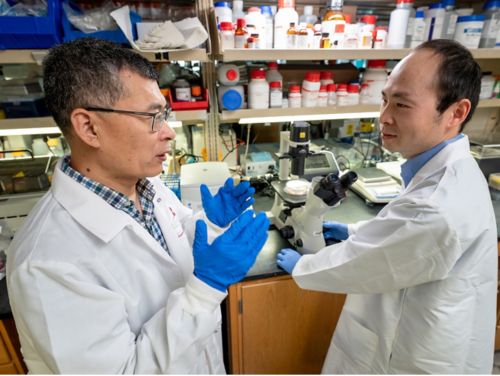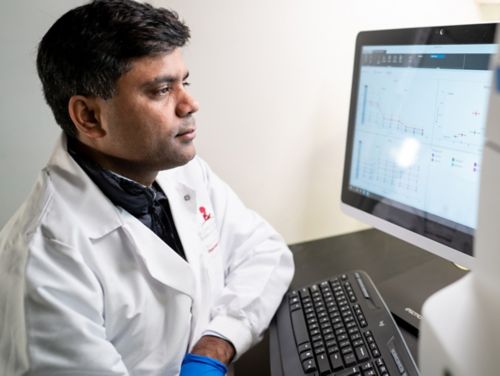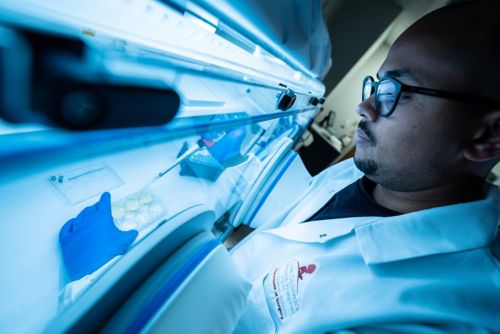St. Jude Family of Websites
Explore our cutting edge research, world-class patient care, career opportunities and more.
St. Jude Children's Research Hospital Home

- Fundraising
St. Jude Family of Websites
Explore our cutting edge research, world-class patient care, career opportunities and more.
St. Jude Children's Research Hospital Home

- Fundraising
Jun Yang Lab
Understanding how genetic abnormalities couple with epigenetic alterations in tumorigenesis and disease progression
About the Yang Lab
Treatments for high-risk forms of solid tumors, such as neuroblastoma, rhabdomyosarcoma, and hepatoblastoma have not experienced a similar progression in patient survival as therapies for blood-related cancers or lower-risk solid tumors. Our research aims to identify genes that drive the development of these high-risk solid tumors. With this knowledge, our goal is to develop small molecules and disease models that lead to innovative and targeted treatment approaches for high-risk solid tumors.

Our research summary
To develop novel, targeted treatments for pediatric cancer, it is crucial to understand the pathogenesis of disease. The research projects in our laboratory seek to identify the histone modifiers and other transcriptional processing regulators that drive some pediatric solid-tumor cancers and subsequently develop small molecules to target these modifiers. In addition, our lab employs transgenic research to develop models that resemble human disease. In order to understand the initiation, progression, and metastasis of these cancers, we employ cutting-edge technologies such as scRNA-seq, scATAC-seq, and spatial transcriptomics.
In our work on histone modifiers, we explore the possibility that the modifiers work in conjunction with oncogenic transcription factors to drive tumorigenesis. We focus on epigenetic modifiers with an eye toward finding an alternative way to block tumorigenesis. Our lab has found that the histone lysine demethylases controls the “undruggable” MYC and PAX3-FOXO1 expression—a finding that holds promise for targeting these oncoproteins in treatment.

In collaboration with the Department of Chemical Biology and Therapeutics, we now develop small molecules to target lysine demethylases in neuroblastoma and rhabdomyosarcoma. Our preclinical model using patient-derived xenografts and cell lines has shown promising results that we hope to bring to clinical trial.
Our disease modeling work focuses on the MYC oncogene in solid tumors, such as neuroblastoma and hepatoblastoma, and how these diseases initiate, progress, and metastasize. Understanding these factors and mapping the oncogenic pathways in models may allow for the future development of novel treatments and therapeutic targets. As an example, we employed genome-wide CRISPR screening and discovered multiple novel genetic modifiers that may synergize or antagonize the effect of the chemotherapeutic agent doxorubicin. Based on those results, we developed a combination therapy that shows to be more effective than doxorubicin alone in cell line, patient-derived xenografts and transgenic models. Exploiting newly established transgenic cell lines, we are now extending our research in this area to identify new therapeutic agents by high-throughput drug screening.
In our work, our laboratory hopes to advance the understanding of how genetic abnormalities couple with epigenetic alterations in tumorigenesis and disease progression. Advancements in these foundational aspects will help develop precise treatments for children with high-risk solid tumors.

Publications
Affiliations and collaborations
Contact us
Jun Yang, MD, PhD
Associate Member
Department of Surgery
MS 332 / Room D3040G
St. Jude Children's Research Hospital
Follow Us

Memphis, TN, 38105-3678 USA GET DIRECTIONS